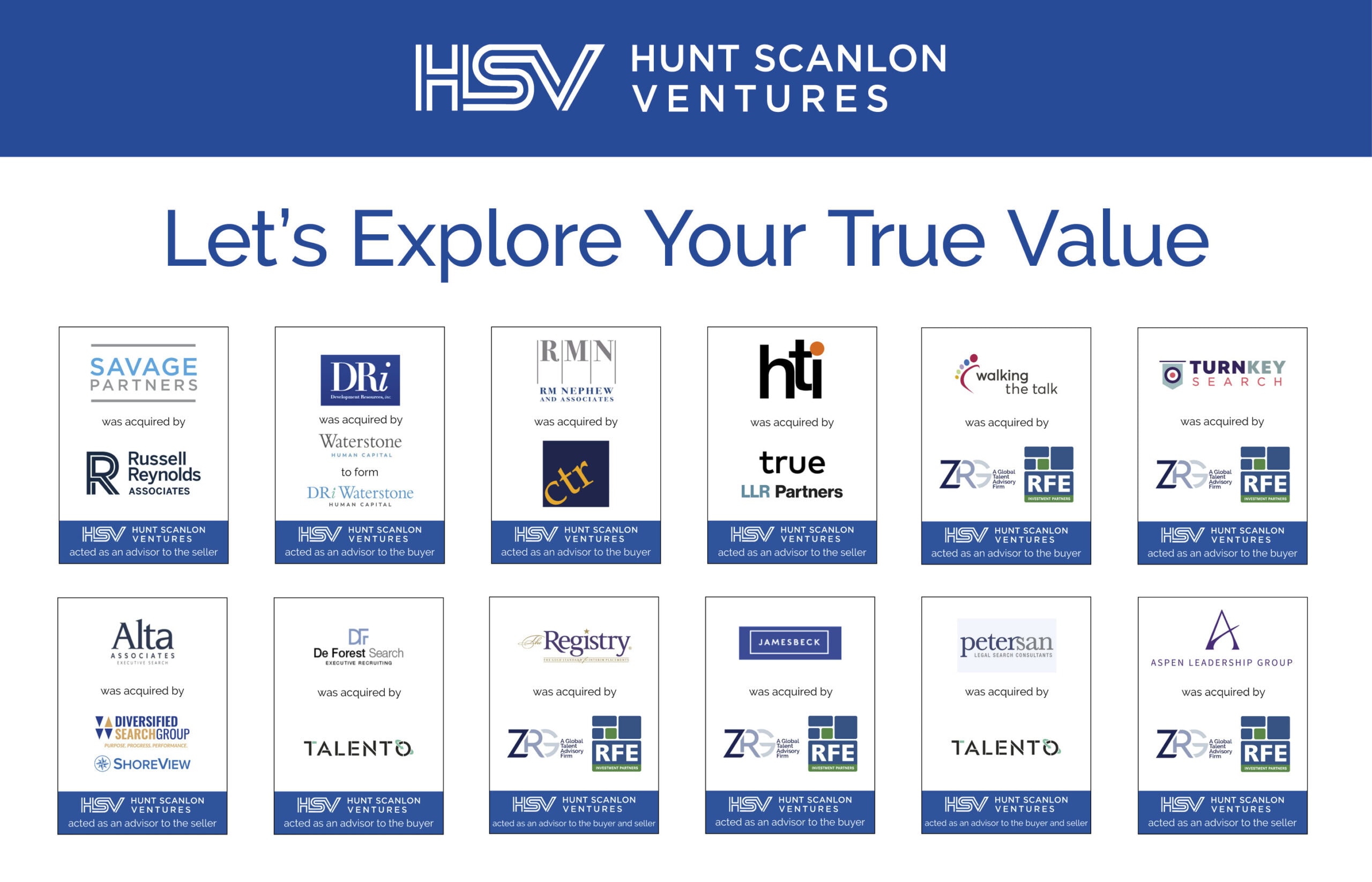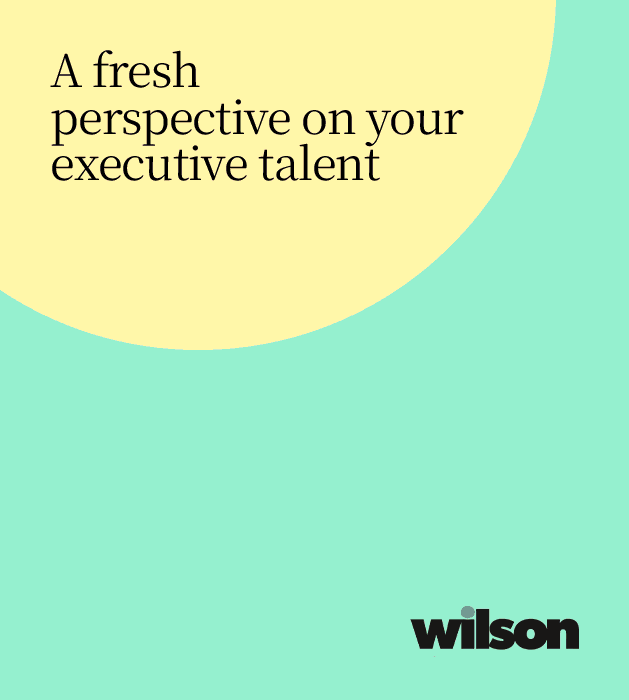McKinsey & Co. data reflects AI’s deepening integration into business processes, and human capital is no exception. As new tools bring heightened efficiencies to talent management firms – M&A activity and investor interest, already high – will only increase.
A McKinsey & Company survey this spring revealed a remarkable adoption of generative AI tools across various industries. Over one-third of respondents reported that their organizations were already leveraging artificial intelligence in at least one business function.
What’s even more astonishing is that nearly a quarter of C-suite executives admitted to incorporating AI into their work processes, signifying a notable shift in how leaders are embracing cutting-edge technology.
The AI Effect on Recruiting
In an upcoming market intelligence report, Hunt Scanlon Ventures has found similar promise in the role AI can play in adding strategic value to search firms and human capital solutions providers. AI has already had a transformative impact on talent acquisition and the executive recruiting space in reshaping how organizations identify potential candidates.
Within this rapidly evolving landscape, advanced AI technologies are playing a pivotal role at a time when recruiters are finding their industry in the midst of a renaissance.
According to Hunt Scanlon, generative AI is on track to becoming the most pivotal advancement for human capital and talent-centric business in more than four decades. Hunt Scanlon has backed up this forecast by investing in AiFlow, an innovative AI-driven market research platform designed to automate competitor analysis and market research for private equity firms. As Josh Gardner, co-founder of AI Flow explains, “PE dealmakers can consider 100x more data, compare more benchmarks, and ultimately consider 10x more deals,” with AiFlow at their side.
“PE dealmakers can consider 100x more data, compare more benchmarks, and ultimately consider 10x more deals.”
“AI tools are arming recruiters with a unique set of tools to optimize their processes,” said CEO Scott A. Scanlon. “The resulting efficiencies will wring more profit out of their businesses,” he noted. One of the critical areas where AI has made a substantial impact is in the creation of compelling job descriptions, the quality of which can significantly affect the caliber of talent a company attracts. Large language models can help to streamline this process by efficiently processing vast amounts of information to generate comprehensive, tailored job specs.
Recruiters are also harnessing LLMs to customize language, tone, and style to align with their target candidates, promoting inclusivity and eliminating potential biases. According to Julio Suarez, managing director at DRiWaterstone Human Capital: “AI can help support the development of job profiles that use inclusive language and help identify qualifications that may be barriers to inclusion. We are incredibly excited about this and see AI as a tool we can use to make some of our processes more efficient.”
AI’s influence is also extending to the initial candidate screening process. LLMs can seamlessly integrate with existing databases and systems to automate this task, lifting a massive time sink from recruiters.
Lurking Bias
Of course, the purpose of AI in talent management is not to replace human recruiters but to amplify their capabilities. As AI continues to evolve, it is essential to use these technologies intelligently and responsibly. While AI excels at automating processes and enhancing efficiency, areas that require human insight, judgment, and empathy – such as assessing soft skills and cultural fit – remain indispensable.
“AI tools are arming recruiters with a unique set of tools to optimize their processes. The resulting efficiencies will likely wring more profit out of their businesses.”
One of the gravest concerns for utilizing LLMs in recruitment is the lack of feasible audit processes available. Large language models draw from massive data sets that are effectively incompatible with an effective audit process. If there is bias hidden somewhere in the data the LLM is drawing from, that bias will be carried over into their recruitment functions.
Whipping Up M&A Activity
While AI-driven recruitment tools certainly have the power to dispense significant bias in the recruitment process, this is only the case if the data they’re being fed is free of bias itself. Brad Westveld, a partner with ON Partners, said that “at present, we are only as good as the data, and AI is still making assumptions. If the data is not right, incomplete, or ‘assumes’ the wrong parameters, can we really trust the output?” Therefore, only the synergy between human intelligence and AI can anchor a more efficient, effective, and responsible executive search process.
Aaron Mitchell Finegold, CMO of Kingsley Gate, discussed one of the primary pitfalls of finding this synergy at a recent Hunt Scanlon conference in San Francisco. He explained to a room full of executive recruiters and PE/VC talent partners how little data exists on the way people perceive responses from large language models.
Do users utilizing an AI tool perceive the responses they receive as if from an omnipotent god, or as another data point for consideration? This question will be studied extensively in the years to come, and the answer to it will have massive implications in finding the synergy between an AI tool and recruiters.
Finding the right balance of AI tools and human touch will be a process of trial and error. As Julio Suarez reminds us: “AI is a tool. It will still be up to the search consultant with the search committee to assess and evaluate candidates to ensure they’re finding the best possible people for the client or the role.”
“Incorporating AI into the business of making perfect talent matches is the first step toward improved efficiency, enhanced candidate engagement, and better placements,” concluded Hunt Scanlon in its report. These tools, it said, when utilized effectively, highlight the harmonious interaction between human expertise and AI capabilities.
AI, with its continual advancements, will certainly become a strategic tool for recruiters. But for search firm founders and human capital business CEOs, the bigger impact will be its widening effect as a value driver. Investors who see that potential today are already whipping up M&A activity within the broader human capital space.
Article By

Caleb Edmundson
Caleb A. Edmundson is Editor-in-Chief of ExitUp, the investment blog from Hunt Scanlon Ventures designed for professionals across the human capital M&A sector. Caleb serves as an Associate for Hunt Scanlon Ventures, providing robust industry research to support the firm’s investment group. Connect with Caleb.






